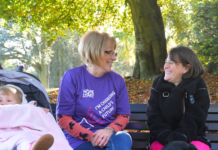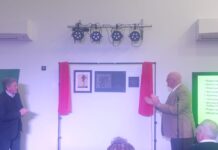Research, conducted as part of the ‘Jo Cox Commission on Loneliness’, reveals the damaging attitudes that still exist towards disabled people
• 1 in 4 (26%) Brits admit to avoiding conversations with disabled people
• Loneliness is disproportionately high amongst disabled people, with over half (53%) experiencing it, rising to three-quarters (77%) for young disabled people
• Fear of causing offence (30%), feeling uncomfortable (20%) and not knowing what to talk about (17%) with disabled people were revealed as most common reasons for avoiding conversation, with only half of the public (52%) believing that they have much in common with disabled people
• Young adults revealed to be twice as likely (50%) to avoid conversations with disabled people
(London, UK – 11 July 2017) – Research launched today, by the national disability charity Sense, reveals that disabled people in the UK are still being marginalised by negative public attitudes – with a quarter (26%) of Brits admitting that they have avoided conversations with disabled people.
Only half (52%) of those responding to the study believed that they had much in common with disabled people; whilst ’fear of causing offence’ (30%), ‘feeling uncomfortable’ (20%) or ‘not knowing what to talk about’ (17%) with disabled people were the most commonly cited reasons for avoiding conversations.
The research, conducted as part of the Jo Cox Commission on Loneliness, is part of the coalition’s work to highlight the disproportionately high levels of loneliness amongst disabled people; one in two (53%) of whom report feeling lonely, and just under a quarter (23%) say that they experience loneliness on a typical day.
Young adults, under the age of 24, were revealed to be twice as likely (50%) to have avoided conversations with disabled people, contributing to the increased risk of social isolation for their disabled peers, over three quarters (77%) of whom report loneliness. Young adults were also found to be the least likely to meet disabled people, with a quarter (23%) of those surveyed unable to recall the last time they encountered someone with a disability
Sense is a founding partner of the Jo Cox Commission on Loneliness, chaired by Rachel Reeves MP and Seema Kennedy MP, which aims to start a national conversation on the ‘silent epidemic’ of isolation across the UK. Over the next month, Sense will lead a coalition of 21 disability charities to shine a spotlight on the issue of loneliness for disabled people and the steps that can be taken to help tackle it.
Rachel Reeves MP, Co-chair of the Jo Cox Commission on Loneliness, said:
“Many of the barriers to building social connections for disabled people are practical ones, such as the need for accessible transport and buildings, financial support and appropriate social care; but public attitudes also play a part in the risk of loneliness for people with disability.
“Increasing awareness of different conditions and battling misconceptions about disability are both important steps to help reduce loneliness amongst disabled people.”
Seema Kennedy MP, Co-chair of the Jo Cox Commission on Loneliness, said:
“Jo Cox strongly believed that ‘we have far more in common than that which divides us’. However, disabled people are often marginalised from friendship because of poor levels of public understanding. These misconceptions can sometimes cause people to assume that they won’t have much in common with someone who has a disability, and in some cases can even prevent individuals from engaging in conversations with disabled people altogether.
“To help fight loneliness, it is vital that we all focus on our similarities rather than our differences. We can all create connections, find common interests and form friendships by taking the time to start a conversation”
Sense Deputy CEO, Richard Kramer, said:
“Loneliness is disproportionally high amongst disabled people, many of whom say they feel lonely every single day.
“We all have things in common; however, outdated attitudes towards disability are still preventing people from striking up conversations and finding the shared interests that are often the key to friendship. Better understanding of disability and a shift in societal awareness are a key step in allowing disabled people to play a full part in society with the same opportunities to make connections as everybody else.”
‘Someone Cares If I’m Not There’, a new Sense report examining the issue of loneliness for disabled people, will be launched at a Parliament tomorrow afternoon [12th July 2017]. To view the report or for more information on the month’s activities, please visit www.sense.org.uk/loneliness
Help keep news FREE for our readers
Supporting your local community newspaper/online news outlet is crucial now more than ever. If you believe in independent journalism, then consider making a valuable contribution by making a one-time or monthly donation. We operate in rural areas where providing unbiased news can be challenging. Read More About Supporting The West Wales Chronicle





















